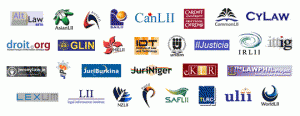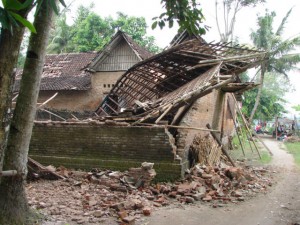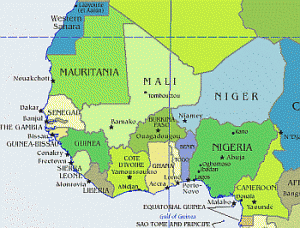 In May of this year, one of us wrote a post discussing two research projects being conducted at the University of Montreal’s Chair in Legal Information. One of those projects, known by its team as the “Free Access to Law – Is It Here to Stay?” Project, has just concluded. This co-authored post is about that project, the stories we heard throughout conducting the research, and what we can learn from those stories about sustaining legal information institutes (LIIs) — a concern that came up on many occasions at this year’s Law via the Internet Conference in Hong Kong, and again in the blogosphere in Eve Gray’s recent post, and Sean Hocking’s post on Slaw, among others.
In May of this year, one of us wrote a post discussing two research projects being conducted at the University of Montreal’s Chair in Legal Information. One of those projects, known by its team as the “Free Access to Law – Is It Here to Stay?” Project, has just concluded. This co-authored post is about that project, the stories we heard throughout conducting the research, and what we can learn from those stories about sustaining legal information institutes (LIIs) — a concern that came up on many occasions at this year’s Law via the Internet Conference in Hong Kong, and again in the blogosphere in Eve Gray’s recent post, and Sean Hocking’s post on Slaw, among others.
The first section of this post — written by Isabelle Moncion of Lexum — is about the “Free Access to Law – Is It Here to Stay?” project as a whole, and the second portion, written by AfricanLII co-founder Mariya Badeva-Bright, focuses on lessons learned as applied to The African Legal Information Institute (AfricanLII).
First, a few words about the methodology of the “Free Access to Law – Is It Here to Stay?” project. In 11 countries and regions –- Burkina Faso, Hong Kong, India, Indonesia, Kenya, Malawi, Mali, Niger, the Philippines, South Africa, and Uganda –- researchers under the coordination of the Chair in Legal Information, AfricanLII, and the Centre for Internet and Society interviewed users of Free Access to Law (FAL) services, and practitioners who create and maintain those services, for purposes of building case studies on one FAL initiative per country. The research was guided by the Local Researcher’s Methodology Guide, which among other things asked the question, “What determines the sustainability of operations of Free Access to Law initiatives?” Along with the case studies (available here, published in the language in which they were written), a Good Practices Handbook (humbly renamed “Good” rather than “Best,” as stories from the FAL initiative showed that unfortunately, but not surprisingly, an always-successful series of practices does not exist) was written based on the results found in the case studies. The handbook will be online soon.
Do check out the case studies and good practices to find out more, as they will be able to provide you with much more in-depth analyses than we can provide in this post. But for now, allow me (Isabelle Moncion) to share a few stories and observations, and perhaps a preview of some good practices, before Mariya shows how these stories can be applied to building new, and supporting existing, LIIs.
PART 1
Sustainability… isn’t just about funding –
This statement is as much a conclusion from the case studies as it is the result of group discussions — held prior to the field research — devoted to defining “sustainability.” Did sustainability mean how we fund LIIs, or was it start-to-finish practices leading to that funding? We went with the latter, and field stories showed that that was the right choice.
Organisational capacity is pivotal to a FAL initiative’s capacity to stick around. In Mali, funding wasn’t so much the issue: the FAL site disappeared when the student intern who had decided to launch the site — after noticing the immense quantity and quality of legal information available at the NGO where he was working, and concluding that this information should be made available online — completed his internship. In Indonesia, funding is without a doubt a challenge, but the Indonesian FAL site currently depends on a single individual, who is unable to devote the time required to maintain the site. The situation is similar in Niger, where the editor must go from court registry to court registry with an external hard drive to collect judgments. The Hong Kong Legal Information Institute‘s (HKLII’s) team is also small, but thanks to a judiciary-supported workflow, the team has been able to offer its users a high quality, reliable service. The Southern African Legal Information Institute (SAFLII) case study further demonstrates that organisational capacity facilitates response to financial crises. To quote from the Good Practices Handbook, “… it is important to build redundancy and transfer knowledge to ensure continuity even on tight budgets. Having a meaningful internship programme with intense mentoring covering the two core skill areas of IT [information technology] and content management, coupled with good documentation, could contribute enormously to the viability of the FAL initiative.”
Organisational capacity also means knowing where one is headed. How many FAL initiatives did we encounter, whose personnel told us their objective is to “reinforce the rule of law” and their target audience is “everyone”? These are no doubt admirable and overarching goals of FAL, but if not coupled with specific objectives, these goals do little to help determine an organisation’s priorities and response to the needs of a particular stakeholder group that is potentially capable of financing the FAL initiative in the future.
Innovation… isn’t just another buzzword –
After using “sustainability” as many times as I have in this post, and now throwing in “innovation,” I beg you to indulge me in this section, and assure you that I will attach meaning to my list of buzzwords. (I promise I’ll save “empowerment” or “participatory governance” for another day, but I may have to use “capacity building” soon.)
Innovation seems like an obvious “good practice” –- but what does it mean in the context of FAL? Many organisations now claim to have “innovation” as part of their values, but as Ginger Grant pointed out so well at a conference on Managing by Values, when asked, “Who are the organisation’s troublemakers?” bosses and managers seem proud to reply that they have none. Well if you have no troublemakers, asks Grant, who’s innovating?
Small FAL teams with limited resources have been able to succeed. Small teams seem to favour the birth of new ideas, which face less resistance than they may in larger teams. Larger teams have managed to reach their size precisely because they initially did something that no one else was doing at the time, but staying innovative can become an increasingly challenging feat.
Having a team knowledgeable in both (legal) information management and IT, knowing who the users are and what their needs are (e.g., making the effort to find out why and how users use the service, and how else they might use the service if resources were unlimited; using Web 2.0 technologies for all they have to offer respecting getting user feedback; etc.), and staying in touch with others doing similar work (the Free Access to Law Movement (FALM); the open source software movement; various open-access, access-to-knowledge, open-knowledge, etc. movements) are just some of the ways FAL initiatives have managed to stay ahead of the curve. This is in part how SAFLII and Kenya Law Reports became among the first LIIs to look in to mobile services. This is how the Canadian Legal Information Institute (CanLII) began offering point-in-time comparison of statutes. This is also how Indian Kanoon — described in this VoxPopuLII post — rests upon a single software engineer and hasn’t stopped growing since its launch.
Where there’s a will –
… there may not always be a way, but there is definitely no way without a will.
In any of the eleven countries studied, the success of FAL initiatives is often the result of key individuals passionate about the task at hand. In places where FAL initiatives have suffered, it is again often the result of lack of interest or competing priorities. Working to (here it comes) build capacity and foster innovation is the M.O. of FAL practitioners motivated often by nothing more than a conviction that “it’s the right thing to do.”
And I hear now what we’ve been told so often throughout the course of the study: “But what do you do when there just isn’t any money?” Of course, this is a monumental challenge for a number of FAL initiatives, but where legal information is being produced, legal information needs to be accessed. The beauty (and essence) of FAL is that content is available to users accessing content for professional reasons, and to any other user, whether he or she is interested in legal information for personal matters, education, social justice, etc. But each of those users may have different needs, and going back to what I was saying above, this is why, particularly with limited resources, it’s important to know whose needs will be prioritized.
Users requiring legal information for their profession are a great stakeholder to target, as they are likely to come with funds. Insure they are receiving a service that facilitates their work and they will see benefit in ensuring the service stays around. (This is part of CanLII’s story.) But, as in the case of West Africa, the legal profession itself isn’t always well funded. So, although I started by stating that sustainability wasn’t all about funding, allow me to conclude by admitting that funding is often FAL initiatives’ greatest concern. In the course of the study, we identified the following funding sources:
- Advertising on the FAL initiative’s Website
- Government, including the judiciary
- International development agencies
- Law societies
- NGOs, or members of civil society with similar missions
- Private donations from users
- Selling parallel, value-added services to subsidize the FAL portion of the initiative
- University grants
Funding from each of these sources comes with strengths and challenges, but such funding also comes with the risk of drying up. Sustainable FAL initiatives have been able to offer user-targeted services, and to identify funding sources accordingly.
Part 2
The lessons from the Free Access to Law Study
 Access to the law of many African countries is difficult, as this law is either locked away in expensive commercial databases, only available in a few law libraries housing out-of-date law reports, or simply not available. The free access to law movement in Africa, through the pioneering efforts of the Southern African Legal Information Institute (SAFLII) and the National Council for Law Reporting (incorporating Kenya Law Reports and KenLII), proved that this deplorable situation can be changed by applying information and communication technologies (ICTs) to the legal information domain. However, my personal experiences, and those of my team, in setting up and running SAFLII (until April 2010) revealed that the solution is not as easily implementable as we would have imagined it. Thoughts on the challenges faced are available through early VoxPopuLII posts by SAFLII’s team here and here.
Access to the law of many African countries is difficult, as this law is either locked away in expensive commercial databases, only available in a few law libraries housing out-of-date law reports, or simply not available. The free access to law movement in Africa, through the pioneering efforts of the Southern African Legal Information Institute (SAFLII) and the National Council for Law Reporting (incorporating Kenya Law Reports and KenLII), proved that this deplorable situation can be changed by applying information and communication technologies (ICTs) to the legal information domain. However, my personal experiences, and those of my team, in setting up and running SAFLII (until April 2010) revealed that the solution is not as easily implementable as we would have imagined it. Thoughts on the challenges faced are available through early VoxPopuLII posts by SAFLII’s team here and here.
Passion is a necessary prerequisite for a free access to law project to succeed. What we, then as a SAFLII team, learnt through our experience, was that besides zeal, IT expertise, and legal information knowledge, a great deal of business sense, structured business planning, and development were also required. We did have access to business expertise, but applying business principles to a novel, and non-profit, enterprise, without systematic guidance from those who had done it before, was very difficult. We learned to navigate the landscape “on the job.” The formulation of a business-development approach to these projects, without compromising the basic tenets of free access to law, has increasingly come into focus for many legal information institutes (LIIs) around the world and in Africa.
The first attempt at formalizing the business-development and project-management knowledge around free access to law projects was the sustainability study undertaken by LexUM and SAFLII in 2009, aptly entitled “Free Access to Law – Is It Here to Stay?” The methodology guide produced during the study was especially useful as the guide systematized all functional, operational, and strategic areas that a free access to law project should account for in its development. All areas would presumably contribute to the strengthening, hence sustainability, of such projects. While I should immediately discount the notion that all new and existing LIIs should be implementing the elaborate structures and extensive practices detailed in the methodology guide assessment matrix (and this is clearly what emerges when we review the case studies produced), a combination of approaches within the broad areas coupled with contextualization for each country would, in my opinion, foster the development of more sustainable LIIs. In that sense, a discernable outcome of the FAL study has been the elaboration of a blueprint for the development of LIIs. The blueprint is based on the collective, two-decades-old knowledge of the free access to law community.
A major aim of the study has been proving the social value that free access to law delivers. To put it squarely, that means linking free access to primary legal materials to values such as democracy, rule of law, and transparency, as well as to more concrete outcomes such as facilitating education and investment, professional capacity, etc. The study does not establish precise causal links between what FAL projects do and these high democratic values. The case studies are largely committed to individual stories that may serve as a basis for a larger study. But the study has managed to isolate links between processes, projects, outputs, and some outcomes of LII projects. The study, through the Good Practices Handbook, has identified causal links between a LII project’s design, implementation, and results. In doing so, the study has also provided the FAL and donor communities with a monitoring and evaluation framework for free access to law projects.
Free access to law projects are usually assessed on indicators such as numbers of documents published, the number of databases created, the number of unique visitors and hits to the Website, etc. But what meaning do growing document collections, growing usage, and a few words from grateful users have if the free access to law project does not use these indicators to channel support for its continued operation? The FAL study has provided us with means to identify priorities and determine the relevance of projects in terms of fulfilling objectives efficiently and effectively, all the while focusing on sustainability. The study provokes a FAL project manager to collect, and donors to seek, credible and useful information that will enable a clear picture of the status of the FAL project to emerge. In addition, incorporation of the lessons learned into the review and development of the project’s operations and strategy will be vital.
To sum up, the main lessons that I have learned from the free access to law study are about streamlining operations and strategy around core thematic areas crucial for the sustainable future of a free access to law project. As a core set of principles that should guide a LII, my LII blueprint includes the following highlights:
- Think sustainability from Day 1
- Demonstrate value from Day 2
- Build a solid organization (no matter how small)
- Identify champions for the cause and make friends for the LII
- Involve all stakeholders early in the life of the LII
- Be transparent about overall objectives and how to achieve them in an efficient and effective way
- Be transparent about income received and expenditures made
- Review strategy and develop operations with an aim of achieving sustainable free access to law
AfricanLII
The approach to free access to law that my new project — the African Legal Information Institute (AfricanLII) — takes is in many ways informed by the “Free Access to Law – Is It Here to Stay?” study. Having had the benefit of working on both elaborating the study’s methodology and conducting two of the case studies, I feel that we can continue to develop and apply the knowledge thus gathered to building a solid foundation for free access to law in Africa. The AfricanLII will be the hub that provides that platform.
Many people had spoken about the idea of establishing an AfricanLII before my colleagues Tererai Mafukidze and Kerry Anderson and I decided to form the Institute. Naturally, there were differences of opinion about what AfricanLII should do and how it should be structured. The commonality was that all saw AfricanLII as a continental-wide portal of African legal information, similar to what WorldLII, CommonLII, and AsianLII offered. The AfricanLII that we envisaged, however, is a lot different from other systems. It is not a centralized access point for African primary legal information. AfricanLII does not collect, digitize, and publish directly legal information from African jurisdictions. We do facilitate finding that information via a federated search facility and the African Legal Index. We do plan on building services around African legal information. But AfricanLII’s mission is to enable access to African legal information by entrenching free access to law principles on national level. We do this by working with institutions in individual African jurisdictions, and helping them establish national legal information institutes and develop and maintain them in a sustainable way.
A standardized approach to delivering free access to law through a regional collection point is not a viable option in Africa. I have learned this through my experience working for a regional portal of free law — SAFLII — operating in the context of a diverse, largely non-digitized, legal information environment. The regional approach does go a long way to prove value and incentivize commitment from national institutions and donors, but it does not provide room for meaningful outcomes, engagement, and a sustainable future for the concept of free access to law on our continent. (See the SAFLII case study in the FAL Project Website for more details.)
AfricanLII works with national LIIs (currently SwaziLII, MalawiLII, MozLII, SeyLII, SierraLII, and LesothoLII) to translate their particular environments into successful and sustainable free access to law operations. We implement sustainability measures on both national and regional levels. For example, targeting government and professional users to support content collection and publication in a jurisdiction is best achieved when the free access to law project is based in that jurisdiction and constantly interacts with the stakeholders to improve the value of its offering. Value additions are also best achieved by locals. AfricanLII assists national LIIs in formulating and executing strategies around local engagement. As a regional hub, we implement sustainability initiatives that make sense only on a regional level. Website monetization activities — web advertisements, directory services, and services around aggregated content, such as news and legal content or free and premium commercial publisher content mashups — are all examples of projects that are best undertaken at a regional level, where more data and more traffic make the activities more profitable. Profits are then channelled into the free access to law work of national LIIs and AfricanLII. We have planned a rollout of financial sustainability initiatives that will take effect in the short, medium, and long terms.
Financial sustainability is achievable only if national LIIs stay on track and develop sound practices in pursuit of a clear strategy. AfricanLII provides contextual operational and strategic assistance, advice, and training to new LIIs which helps these projects develop to potential. In doing so, we engage in rapid skills transfer to organizations with little to no experience in free access to law projects. AfricanLII remains available for continued support beyond the initialization phase.
The Open Society Initiative of Southern Africa (OSISA), The Open Society Institute (OSI), and Freedom House have all provided start-up funding to AfricanLII and some of the national LIIs we support. AfricanLII has developed a monitoring and evaluation framework based on this FAL study which ensures that donor money is well spent and real outcomes are achieved. AfricanLII collects and presents donors with relevant, timely, and accurate information against indicators derived in a credible process.
In conclusion, the Free Access to Law study has had a tremendous, and perhaps not entirely expected, impact on the work of free access to law publishers in Africa. I expect that we will continue to use and develop the study to suit our projects and create new ones based on it.
 Isabelle Moncion is a project manager with Lexum, and was a research assistant at the Chair in Legal Information of the University of Montreal until the end of the above described research project. She holds an MA in political science with a specialisation in international development from the University of Quebec in Montreal, and a B.Sc. in political science and communications from the University of Ottawa.
Isabelle Moncion is a project manager with Lexum, and was a research assistant at the Chair in Legal Information of the University of Montreal until the end of the above described research project. She holds an MA in political science with a specialisation in international development from the University of Quebec in Montreal, and a B.Sc. in political science and communications from the University of Ottawa.
 Mariya Badeva-Bright, Magister Iuris (Bulgaria), LL.M. (Law and Information Technology, Stockholm), co-founded AfricanLII as a project of the Southern Africa Litigation Centre, and works primarily on content, legal information management, electronic legal research training, and policy development for new LIIs in Africa. She is the former Head of Legal Informatics and Policy at SAFLII. She is also a sessional lecturer at the School of Law, University of the Witwatersrand, South Africa.
Mariya Badeva-Bright, Magister Iuris (Bulgaria), LL.M. (Law and Information Technology, Stockholm), co-founded AfricanLII as a project of the Southern Africa Litigation Centre, and works primarily on content, legal information management, electronic legal research training, and policy development for new LIIs in Africa. She is the former Head of Legal Informatics and Policy at SAFLII. She is also a sessional lecturer at the School of Law, University of the Witwatersrand, South Africa.
VoxPopuLII is edited by Judith Pratt. Editor-in-Chief is Robert Richards, to whom queries should be directed. The statements above are not legal advice or legal representation. If you require legal advice, consult a lawyer. Find a lawyer in the Cornell LII Lawyer Directory.










